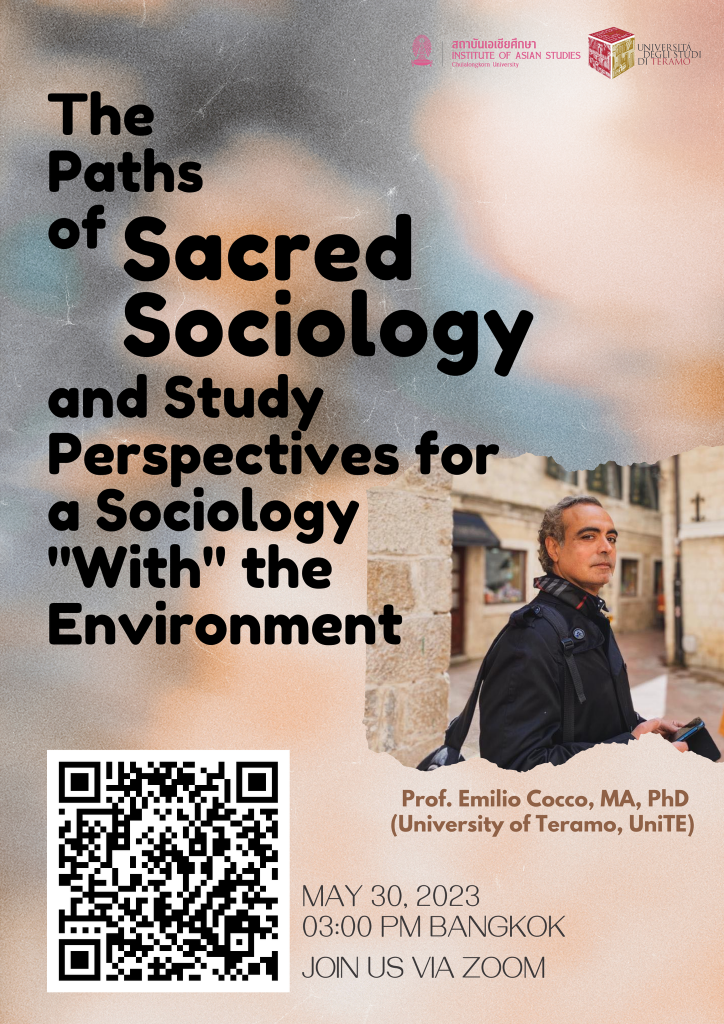By Professor Emilio Cocco, MA, PhD (University of Teramo, UniTE)
DoS MA course in Communication Science
With the assistance of: Ms. Emanuela Diodati
UniTE Research Assistant & Graduate Student in Environmental Humanities (University of Roma 3).
Date: May 30, 2023, at 03.00 PM (Bangkok) or 10.00 AM (European Standard Time)
Join Zoom Meeting https://chula.zoom.us/j/98487585089?pwd=bEtCYlpta1pyNW1wcDRkRlg1dkxRZz09Meeting
ID: 984 8758 5089
Password: 936664
Organized by
Institute of Asian Studies, Chulalongkorn University and the Faculty of Communication Science, University of Teramo

ABSTRACT:
The concept of the sacred underwent scientific debate during the 19th century, attracting various disciplines and national traditions. While secularization seemed to diminish its significance, scholars sought pre-rational foundations for social cohesion. The French sociological school, led by Durkheim, explored the sacred as a powerful force in society, capable of unleashing collective effervescence and maintaining order through rituals. However, the post-IIWW period saw a decline in the sacred as consumer society embraced individualism, leading to a fragmented social fabric. The question arises: can a renewed relationship with nature bring back the sacred? Nature itself is not an objective reality but constructed through social practices, cultural representations, and economic organization. In a global society shaped by Neo-liberalism, where capitalism reigns, the role of the sacred in relation to nature is questioned. How can collective representations from indigenous cultures coexist with the dominant neo-liberal ideology? Environmental consciousness and activism must navigate the tension between capitalist narratives and the need for a holistic approach that recognizes the regenerative power of nature. The search for an environmentalist perspective and a sociology of the environment that integrates the active sacred, interdiction, separation, and ritualization may provide a framework for understanding and addressing the challenges of our time.
The experience of the Covid-19 pandemic and the potential for a sacred ecology that reconnects society with nature may open new avenues for exploration.

